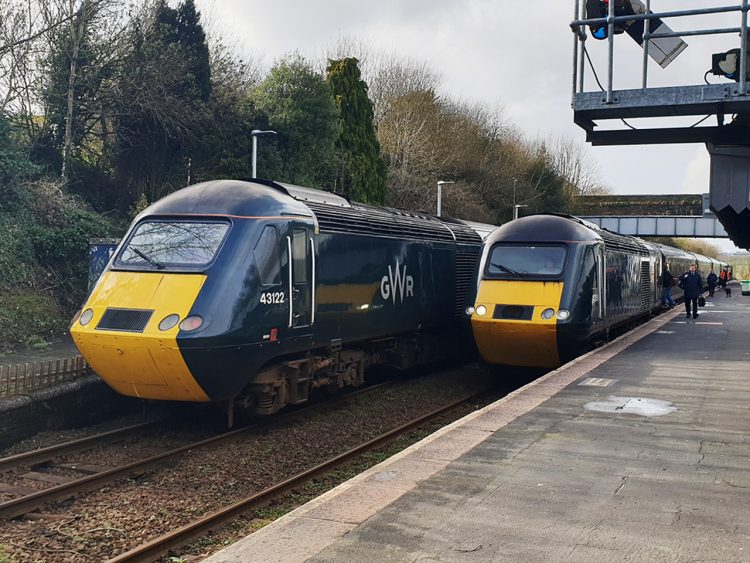A “win-win” situation has been secured by the West Somerset Railway with an agreement to store two of Great Western Railway‘s “Castle Class” high-speed trains (HSTs) on its line in return for being able to use them in passenger service.
The high-speed trains are being withdrawn from the mainline network during the next few months, which has caused short-term storage problems for Great Western, and an arrangement to store them on the West Somerset Railway from last Monday, 11 September, was agreed at relatively short notice.
In return for storing the trains, Great Western has agreed that the West Somerset Railway can use one of them in normal operational service on Saturday, 23 and Sunday, September.

On both days the railway will be operating to its “yellow” timetable, and the HST will make two return journeys from Minehead to Bishops Lydeard. Departure from Minehead will be at 10.00 and 14.30, and the return journey from Bishops Lydeard will be at 12.30 and 16.35.
The trains are timed so that passengers can make a return journey starting from either end of the line. Normal fares will apply on both days, so alternatively passengers can travel one way on the HST and the other on a regular steam-hauled train. Further details can be found on the HST Running Days web page here.
British Railways introduced High Speed Trains (HSTs) over forty years ago in 1976, and are still the fastest diesel-powered trains in the world. During their regular service, they were to be seen throughout the length and breadth of Britain, particularly on the former Western Region lines out of London Paddington to South Wales, Bristol, and the West of England.
They were also widely used on cross-country routes between the southwest, the Midlands, the North, and Scotland. As the routes west from Paddington were electrified, they were replaced by IETs (Inter-City Express Trains) which can run on both electricity and diesel power. Great Western reformed some of its HSTs into sets of four coaches, with a power car at each end (“2 + 4”) and designated them as the “Castle Class”, with the power cars named after West Country castles. It is two of those sets that are to be stored on the West Somerset Railway.
In the past, HSTs have been occasional visitors to the West Somerset Railway, but none have ever been based there.





Responses
Well, they are “GWR” HSTs . . .